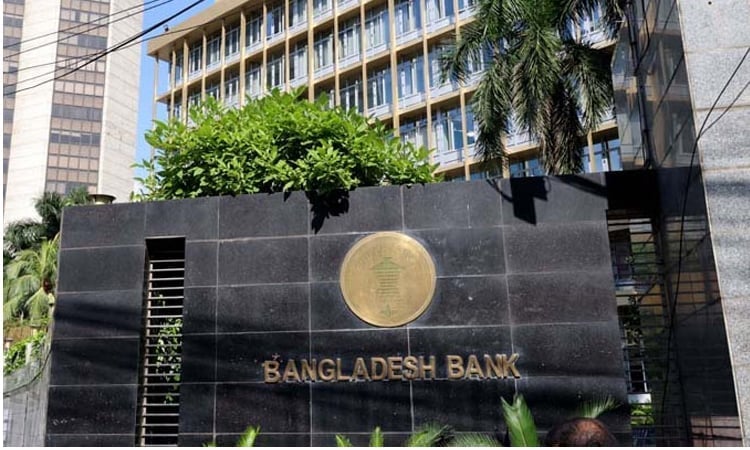News Flash

DHAKA, Aug 5, 2025 (BSS) - With the interim government completing one year on August 8 after taking over the responsibility last year, Bangladesh's foreign currency reserves have gained stability as trust and confidence of the concerned have made a rebound in the economy and the banking system.
Within this period, foreign currency reserves have gone up from less than $20 billion at the end of July 2024 to over $30 billion at the end of July, 2025, indicating that the country is now going well through an economic recovery phase.
According to the Bangladesh Bank (BB) latest data, the country's gross reserves have risen to $30 billion by July 24, 2025.
However, as per the International Monetary Fund (IMF) methodology under the Balance of Payments and International Investment Position Manual (BPM6), Bangladesh's net reserves have currently stood at $24.99 billion.
Economists and experts observed that rebounding trust in the economy and the banking system is an important bellwether of Bangladesh's strong foreign currency reserves.
They observed that the exchange rate stability helped to halt the erosion of foreign exchange reserves, which is rebuilding gradually in recent months.
The high inflow of remittances appears to be an automatic outcome of curbing hundi, money laundering, and corruption following the end of Sheikh Hasina's autocratic regime on August 5 last year, which contributed to the turnaround in the external sector, industry insiders mentioned.
Talking to BSS, General Economics Division (GED) Member of the Planning Commission Dr Monzur Hossain said the export earnings, inward remittance flow and the exchange rate are in good shape as the export earnings have increased over the months side by side the inward remittance flow has also increased.
Apart from this, he said that the exchange rate has been stabilized while the foreign currency reserves have also increased which indicates that the external sector is in a comparatively good condition.
Talking to BSS, Bangladesh Bank Executive Director and Spokesperson Arif Hussain Khan said the stable reserve position also reflected in the current and financial account balances, as deficits in the external accounts narrowed significantly amid easing of the dollar crisis.
Strong inflows from remittances and exports helped rebuild reserves, he added.
The surge came based on a significant increase in remittance inflows, which reached $30.33 billion in the outgoing fiscal year 2024-25 (FY25), marking the highest amount ever received in a single fiscal year in the country's history.
This figure reflects a 26.80 percent increase compared to the $23.91 billion received in the previous fiscal year (FY24).
This surpasses the earlier record of $24.77 billion received in FY 2020-21 during the Covid-19 pandemic, when remittances spiked due to restrictions on informal hundi channels and the introduction of incentive bonds.
Like the last fiscal, the positive trend of the remittance inflow continues as expatriate Bangladeshis sent around $2.48 billion remittances during the July in the fiscal 2025-26 which was around 30 percent higher than the same period of the last fiscal 2024-25.
Arif Hussain said that the reserves are rising due to the declining trend in money laundering, with a good flow of expatriates income and high growth in exports.
“Around one year ago, the interim government came to power, promising to bring changes across the board. A number of policy measures have been taken to reform the national economy, organizations, administration, and thus establishing a strong system of fostering public spirit,” he added.
The Bangladesh Bank official said several factors contributed to the sudden surge of remittances in Bangladesh.
“While the government took a range of initiatives to tackle price manipulation under the capital market, defying the norm, surging exports reaching a staggering amount of $48 billion which has also contributed to this rise,” he mentioned.
He said the non-residents or the Bangladeshi expatriates also felt motivated to send remittances legally through the banking channel.
Renowned economist Dr Zahid Hussain said the surge in remittances has played a crucial role in replenishing the reserves, providing much-needed relief to the economy.
“Due to the dollar crisis, Bangladesh economy faced a lot of problems. It was difficult for banks to open letter of credit (LC). Now everything is gradually becoming normal,” he added.
Dr Zahid, also the former lead economist of the World Bank Dhaka office, mentioned that after taking office, the interim government started to restore regulations in the banking sector, supported the distressed institutions from falling further and took initiatives to bring back.
The government has advanced a lot in freeing the banking sector from the clutch of a business conglomerate, he said.
“We're going towards a more or less stable condition, but I won't say the crisis is over,” he added.